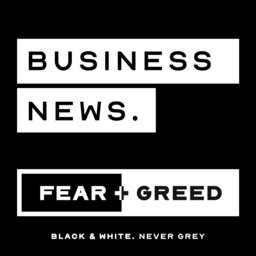Interview: The best explanation of the metaverse you'll find
There’s been a lot of talk about the metaverse since Facebook changed its name to Meta. But what is it, how will it affect your life and why should you care?
Australian tech entrepreneur Stephen Phillips is the founder and CEO of Splash and is already deeply entrenched in the metaverse. He gives the best explanation you'll hear. Even better than Mark Zuckerberg's.
 FEAR & GREED | Business News
FEAR & GREED | Business News


